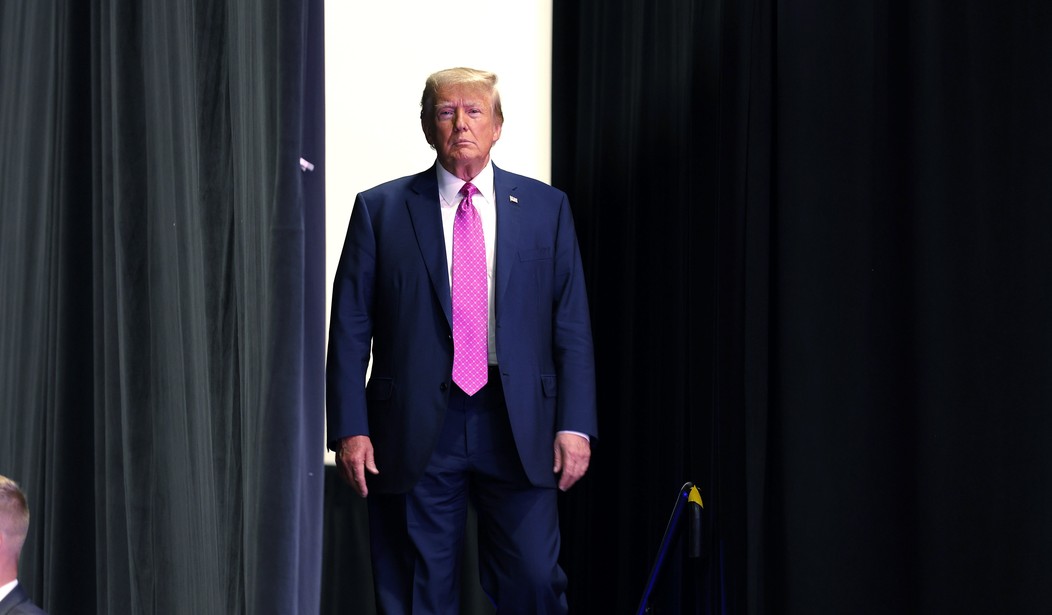As Donald Trump prepares for his third set of indictments and what that might mean for his 2024 candidacy, he also appears to be increasingly upset at the number of people who worked for him or who he believes “owe” him and yet aren’t automatically on board with his re-election bid.
The latest example of this frustration comes from Axios, which notes the silence of Arkansas Governor Sarah Sanders.
Driving the news: Trump‘s frustration has risen recently because Sanders’ team had told his campaign she wouldn’t make an endorsement until after her first legislative session in Arkansas, according to two people familiar with the discussions.
- That session ended in May, and still, no endorsement.
Why it matters: Sanders is among several Republicans with national ambitions who are staying neutral in the presidential primary despite the former president’s large lead in early polls. But Sanders’ political calculation is complicated by her tenure as the voice of Trump’s White House.
- Potential future presidential candidates including Sens. Ted Cruz (Texas), Tom Cotton (Arkansas), Josh Hawley (Missouri), Rand Paul (Kentucky) and Marco Rubio (Florida) — along with Govs. Greg Abbott (Texas) and Kristi Noem (South Dakota) — have declined to endorse in the primary, waiting to see whether GOP voters want to move on from Trump and his legal battles.
Trump sees this as a painful betrayal after he hired her to be his press secretary and endorsed her early in her gubernatorial bid. That she has stayed silent so far is probably not sitting well with him.
But, consider the number of people who worked for Trump and are now either directly opposed to him or at least silent regarding his candidacy. He’s publicly gone after politicians he endorsed who didn’t work for him for not being loyal now. How infuriating is it for someone like Trump when people he hired don’t return the love?
Considering the pattern that’s emerged in the wake of the Trump administration, maybe it says more about the boss than the employees.
I mean, this is the guy who put Tony Fauci on a pedestal (possibly literally as the good doctor doesn’t seem very tall) and made him the face of the government’s COVID-19 response – much to the detriment of Americans across the country. His involvement in the 2022 elections appears to have had a negative impact. And, lately, he’s been more prone to attacking Republicans than Democrats. Why would they come out and endorse him?
The problem for Trump is that he expects people to hitch their horses to him, but he won’t hitch his horse to them. He is transaction but only in a way that benefits him, and at the first sign of (what he perceives to be) disloyalty, he drops them, distances himself from them, and insults them. His attacks on Kayleigh McEnany last month prove that.
It’s not really all that hard to understand why some Republicans don’t want to hop back into bed with his candidacy.
Combine that with the steady flow of indictments and other legal battles, and you might start to think that Trump is indeed radioactive among elected Republicans. However, he still has a fiercely loyal base and could very likely see a bump in polling based on the latest legal drama from Special Counsel Jack Smith. Those Republicans who used to work for him and are now either in office, running for office, or moving on to greener pastures elsewhere find themselves frustrated that Trump is so wishy-washy and so prone to turning on them. There’s a high level of burnout among Republicans, and it’s not because they’re fickle or closet liberals. They’re just tired of the drama, but they don’t want to alienate Trump voters by coming out against them.
But most Republicans in that position – with the exception of those now running against Trump – aren’t going to say it, either. And even the current political opponents in the GOP primary are trying to skirt around the issue because they know they need to convince Trump voters to support them.













Join the conversation as a VIP Member